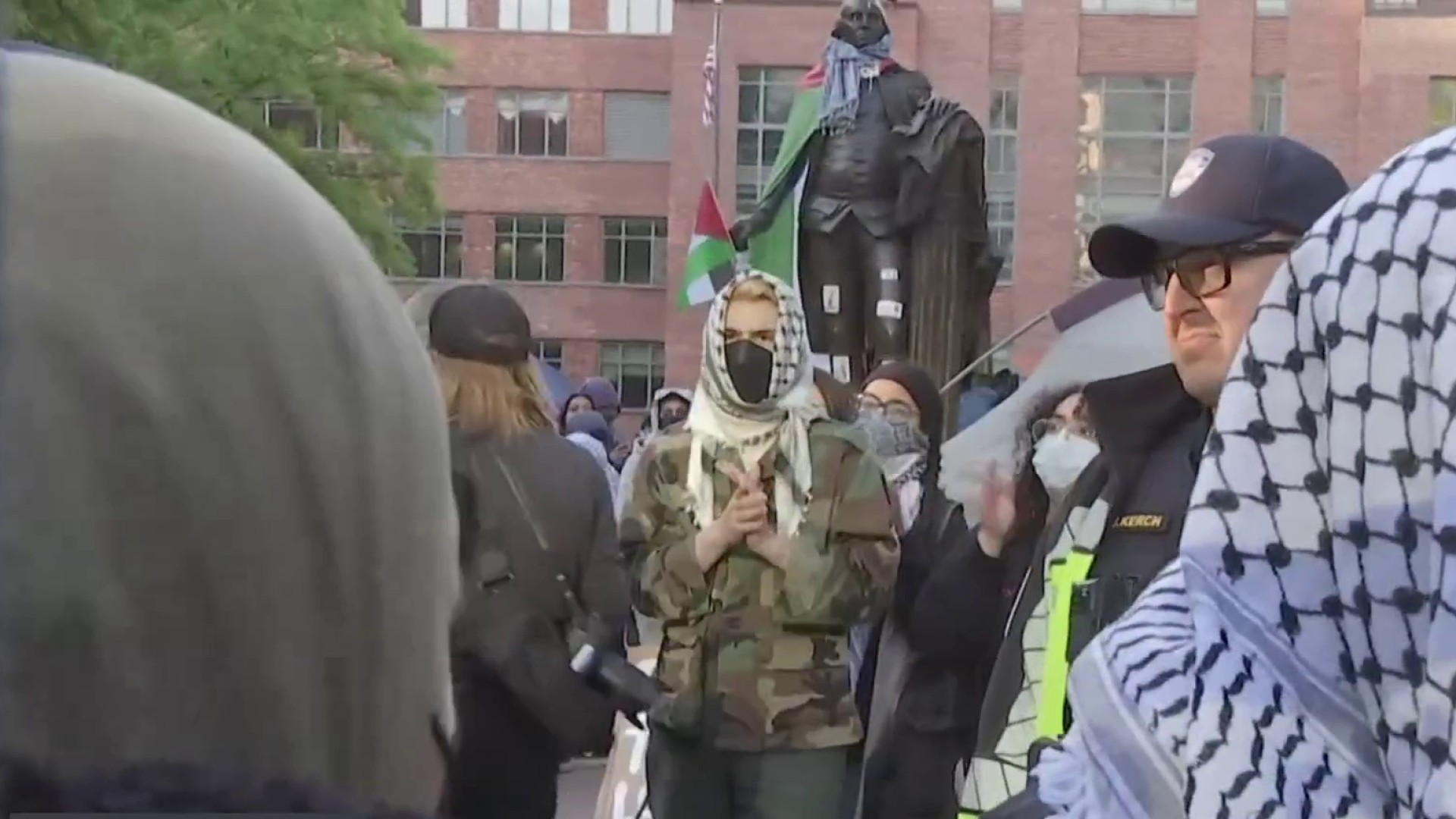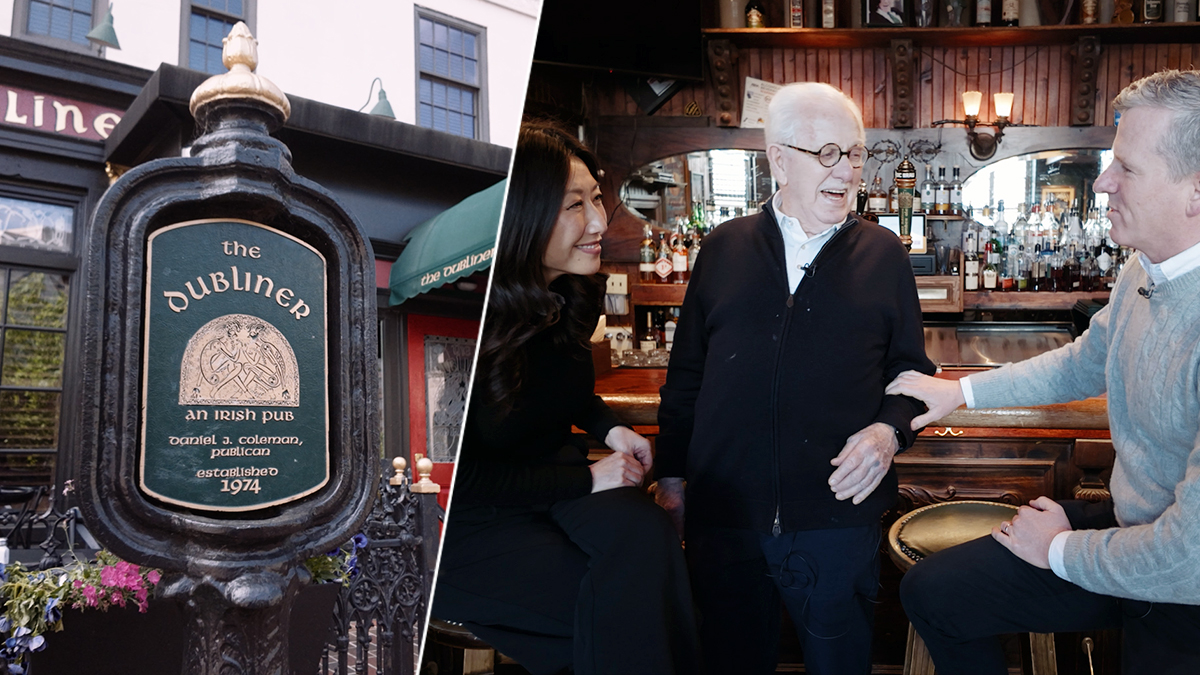A federal judge ruled late Thursday evening Virginia's gay marriage ban is unconstitutional.
U.S. District Judge Arenda L. Wright Allen's decision makes Virginia the second state in the South to have a ban on gay marriages overturned.
Wright Allen stayed her decision until an appeals court rules, meaning that gay couples will not be able to marry in the state immediately.
Eight years ago, Virginians voted to constitutionally define marriage between a man and a woman. Thursday, Wright Allen ruled the ban violated the due process and equal protection clauses of the 14th Amendment.
"The men and women, and the children too, also ask for fairness, and fairness only. This, so far as it is in this Court's power, they and all others shall have," she wrote.
Local
Washington, D.C., Maryland and Virginia local news, events and information
The two couples at the center of a fight over the legality of gay marriage in Virginia held a Valentine's Day press conference, celebrating the judge's ruling.
Tim Bostic and Tony London of Norfolk and Carol Schall and Mary Townley of Chesterfield County praised Judge Wright Allen's late-night ruling.
Bostic and London filed the initial complaint last year when their application for a marriage license was denied.
Townley and Schall were added as plaintiffs to the case. The two were married in California in 2008, but their marriage was not recognized in the Commonwealth. Their claim centered around Schall's wish to adopt Townley's birth daughter, which she was unable to do under Commonwealth law. Court documents say the two women tried to renew their daughter's passport at a US Postal Office in Virginia, and were denied.
"You're nobody, you don't matter," the two were told by a clerk, according to court documents.
Court documents go on to describe Virginia marriage benefits the couple was unable to attain.
Recently-elected Attorney General Mark Herring announced earlier this year he would not uphold it, paving the way for Bostin, London, Townley and Schall's cases.
"The legal process will continue to play out in the months to come, but this decision shows that Virginia, like America, is coming to a better place in recognizing that every Virginian deserves to be treated equally and fairly,'' Herring, a Democrat, said in a statement.
Gov. Terry McAuliffe applauded the judge's decision, calling the ruling a "significant step forward in achieving greater equality for all" Virginians.
In her ruling, Wright Allen cited freedoms guaranteed to all Americans and protected by the Constitution.
"Justice has often been forged from fires of indignities and prejudices suffered. Our triumphs that celebrate the freedom of choice are hallowed. We have arrived upon another moment in history when We the People becomes more inclusive, and our freedom more perfect," she wrote.
Wright Allen went on to explain personal liberties should not be cherry-picked on a case-by-case basis.
"Government interests in perpetuating traditions, shielding state matters from federal interference, and favoring one model of parenting over others must yield to this country's cherished protections that ensure the exercise of the private choices of the individual citizen regarding love and family," she wrote.
The decision comes the day after a similar ruling in Kentucky and following similar rulings in federal courts in Utah and Oklahoma.
Supporters of the state ban on same-sex marriages issued statements decrying Wright Allen's ruling.
"It appears that we have yet another example of an arrogant judge substituting her personal preferences for the judgment of the General Assembly and 57 percent of Virginia voters,'' said Tony Perkins, president of the conservative Family Research Council. "Our nation's judicial system has been infected by activist judges, which threaten the stability of our nation and the rule of law.''
Brian Brown, President of the National Organization for Marriage, called the ruling ``another example of an Obama-appointed judge twisting the constitution and the rule of law to impose her own views of marriage in defiance of the people of Virginia.''
Opponents of the Virginia ban say the issue resonates in Virginia in particular because of a landmark 1967 U.S. Supreme Court decision involving a Virginia couple and interracial marriage.
Mildred and Richard Loving were married in Washington, D.C., and lived in Virginia when police raided their home in 1958 and charged them with violating the state's Racial Integrity law. They were convicted but prevailed before the Supreme Court.
During verbal arguments in the gay marriage case, Virginia Solicitor General Stuart Raphael said that ban is legally indistinguishable from the one on interracial marriage. He said the arguments used to defend the ban now are the same ones used back then, including that marriage between two people of the same sex has never been historically allowed. Wright Allen concurred with that assessment in her ruling.
"Tradition is revered in the Commonwealth, and often rightly so. However, tradition alone cannot justify denying same-sex couples the right to marry any more than it could justify Virginia's ban on interracial marriage,'' she wrote.
Raphael also said supporters have failed to prove how allowing gay marriage would make heterosexual couples less likely to marry.
Nationwide, there are more than a dozen states with federal lawsuits challenging state bans on same-sex marriage.
The Associated Press contributed to this report.



